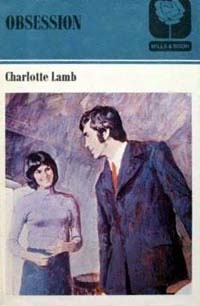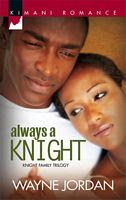Charlotte Lamb's Influences
Some people have asked about Charlotte Lamb's influences as a writer. I can't be comprehensive here, not without researching the question at length, but I shall attempt to answer that briefly by outlining a number of her favourite authors and books.
First, it's important to note that Charlotte Lamb's library was extensive, to the tune of many thousands of books accumulated over nearly five decades of voracious reading. So any comments I make here can only be very general in nature, and some equally important influences may either not be mentioned at all or glossed over. Indeed, I may access more information on this topic and return to it in a future blog entry. Anyone researching twentieth-century romantic novelists and their influences is welcome to approach me by email for a more detailed picture of my mother's reading habits.
In her early days as a novelist, before her all-important shift from Robert Hale to Mills & Boon, her books tended to be more historical than romantic. That blurring of the line between the two genres came from having cut her teeth on the likes of Mary Stewart, Mary Renault - an Essex-born author like Charlotte Lamb herself - and Jean Plaidy (herself the user of multiple pseudonyms such as Eleanor Burford, Victoria Holt and Philippa Carr), all of whom were equally interested in maintaining complete accuracy of historical detail whilst still honouring the romantic element of their plots.
The light Regency romances of Georgette Heyer also held a special place in her heart, Sylvester and Venetia being firm favourites. Several of Heyer's non-Regency historicals were also to be found on her most-accessed shelves - The Conquerer, for instance, and Beauvallet. The influence of Heyer's swift intellectual banter between hero and heroine can be seen at work in almost all Lamb's novels, though perhaps especially at her peak in the 1980s.
Before even that, as a teenager, she had enjoyed steeping herself in the work of nineteenth-century novelists - primarily 'character-driven' writers like Charles Dickens with his rich, eccentrically-peopled novels. Jane Austen was another constant presence on her bedside table. In later years, she loved to listen to classic audio books on her 'Walkman': she owned the entire Austen oeuvre on cassette. Although she loved them all, Emma, I believe, took precedence for her over the more popular Pride and Prejudice. It should be noted that her knowledge of such writers and their works was encyclopedic; her grasp of literary traditions was formidable and far beyond what might be deemed necessary for a career as a romantic novelist.
Favourite twentieth-century authors included Graham Greene, in whose work and biography she was particularly interested, and later crime writers such as Ellis Peters and Ruth Rendell. Her non-fiction tastes lay in gardening and cookery books - interests which often worked their way noticeably into her novels - and more extensively in the field of biography (usually that of other novelists and poets, but also charismatic historical figures like Napoleon, about whom she wrote as Sheila Lancaster in a 1982 novel, Mistress of Fortune).
Of the poets, John Keats and William Blake were perennial favourites. She had a keen interest in poetry, even writing a little unpublished verse herself. Well-read in the works of British and American poets, from the medieval Chaucer through to T.S. Eliot and Stevie Smith, her tastes nevertheless tended toward the conventional and romantic, especially in later life, and away from anything either emotionally excessive - such as the confessional poets - or overly-modernist.
I have not mentioned Shakespeare here so far, but his voice was a constant influence over Lamb from her earliest short stories published in women's periodicals of the 1970s through to her last works. She regularly quoted from his plays and sonnets in her novels, and displayed a profound knowledge of his life and work - and indeed that of other dramatists through the ages - when writing specifically about actors or the stage in her novels. Again as Sheila Lancaster, she even wrote Shakespeare himself into Dark Sweet Wanton (Hodder & Stoughton, 1979), a novel based on the myth of the infamous 'dark lady' of Shakespeare's sonnets.
To trace the pervasive nature of Shakespeare's influence through Charlotte Lamb's writing would constitute a massive research project in its own right and is - sadly - beyond the scope of this blog.
First, it's important to note that Charlotte Lamb's library was extensive, to the tune of many thousands of books accumulated over nearly five decades of voracious reading. So any comments I make here can only be very general in nature, and some equally important influences may either not be mentioned at all or glossed over. Indeed, I may access more information on this topic and return to it in a future blog entry. Anyone researching twentieth-century romantic novelists and their influences is welcome to approach me by email for a more detailed picture of my mother's reading habits.
In her early days as a novelist, before her all-important shift from Robert Hale to Mills & Boon, her books tended to be more historical than romantic. That blurring of the line between the two genres came from having cut her teeth on the likes of Mary Stewart, Mary Renault - an Essex-born author like Charlotte Lamb herself - and Jean Plaidy (herself the user of multiple pseudonyms such as Eleanor Burford, Victoria Holt and Philippa Carr), all of whom were equally interested in maintaining complete accuracy of historical detail whilst still honouring the romantic element of their plots.
The light Regency romances of Georgette Heyer also held a special place in her heart, Sylvester and Venetia being firm favourites. Several of Heyer's non-Regency historicals were also to be found on her most-accessed shelves - The Conquerer, for instance, and Beauvallet. The influence of Heyer's swift intellectual banter between hero and heroine can be seen at work in almost all Lamb's novels, though perhaps especially at her peak in the 1980s.
Before even that, as a teenager, she had enjoyed steeping herself in the work of nineteenth-century novelists - primarily 'character-driven' writers like Charles Dickens with his rich, eccentrically-peopled novels. Jane Austen was another constant presence on her bedside table. In later years, she loved to listen to classic audio books on her 'Walkman': she owned the entire Austen oeuvre on cassette. Although she loved them all, Emma, I believe, took precedence for her over the more popular Pride and Prejudice. It should be noted that her knowledge of such writers and their works was encyclopedic; her grasp of literary traditions was formidable and far beyond what might be deemed necessary for a career as a romantic novelist.
Favourite twentieth-century authors included Graham Greene, in whose work and biography she was particularly interested, and later crime writers such as Ellis Peters and Ruth Rendell. Her non-fiction tastes lay in gardening and cookery books - interests which often worked their way noticeably into her novels - and more extensively in the field of biography (usually that of other novelists and poets, but also charismatic historical figures like Napoleon, about whom she wrote as Sheila Lancaster in a 1982 novel, Mistress of Fortune).
Of the poets, John Keats and William Blake were perennial favourites. She had a keen interest in poetry, even writing a little unpublished verse herself. Well-read in the works of British and American poets, from the medieval Chaucer through to T.S. Eliot and Stevie Smith, her tastes nevertheless tended toward the conventional and romantic, especially in later life, and away from anything either emotionally excessive - such as the confessional poets - or overly-modernist.
I have not mentioned Shakespeare here so far, but his voice was a constant influence over Lamb from her earliest short stories published in women's periodicals of the 1970s through to her last works. She regularly quoted from his plays and sonnets in her novels, and displayed a profound knowledge of his life and work - and indeed that of other dramatists through the ages - when writing specifically about actors or the stage in her novels. Again as Sheila Lancaster, she even wrote Shakespeare himself into Dark Sweet Wanton (Hodder & Stoughton, 1979), a novel based on the myth of the infamous 'dark lady' of Shakespeare's sonnets.
To trace the pervasive nature of Shakespeare's influence through Charlotte Lamb's writing would constitute a massive research project in its own right and is - sadly - beyond the scope of this blog.


Comments
Post a Comment
Thank you for choosing to comment!
If you have a favourite Charlotte Lamb novel to share, please tell us why you loved it - along with a brief outline of the plot, if possible.